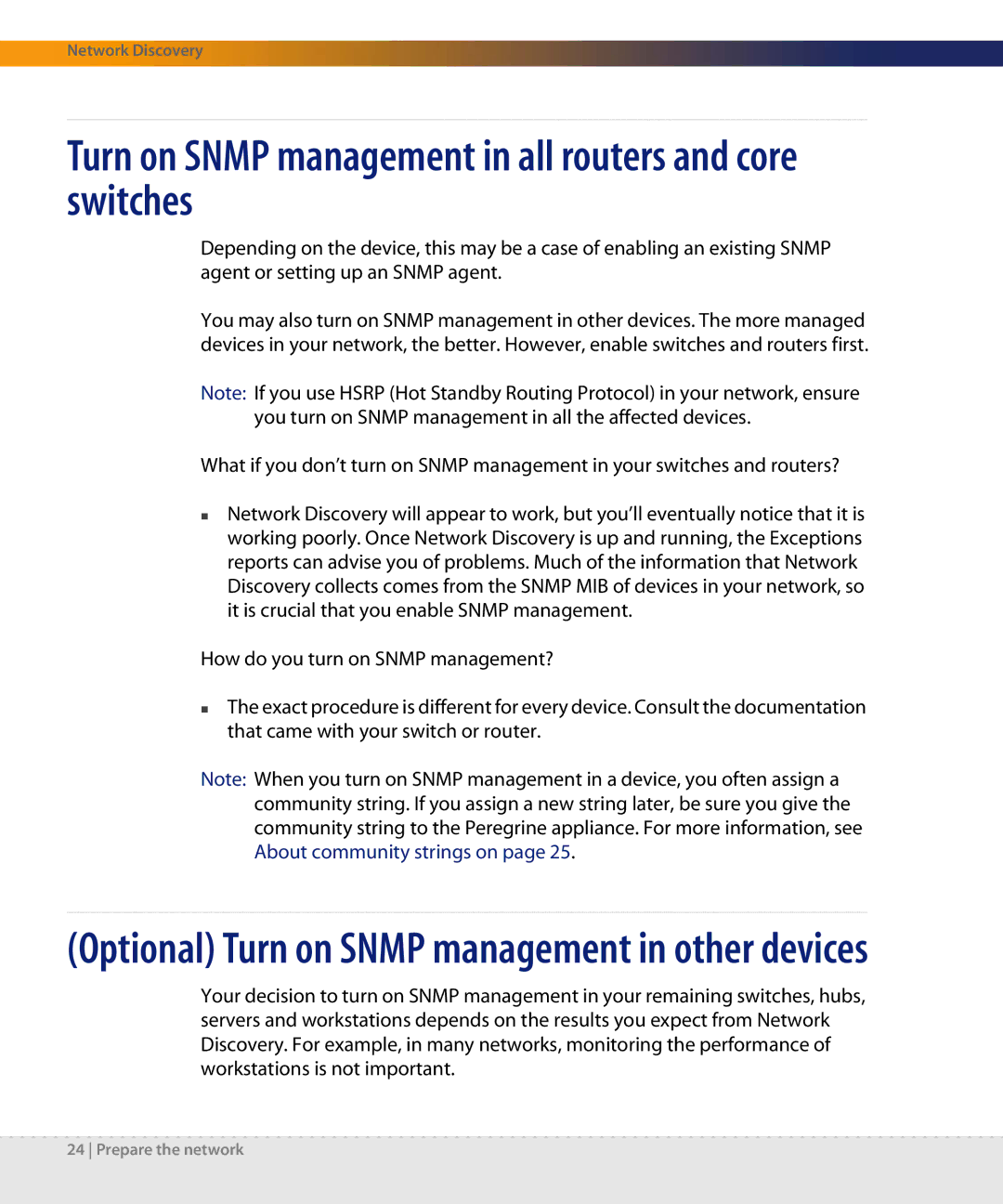
Network Discovery
Turn on SNMP management in all routers and core switches
Depending on the device, this may be a case of enabling an existing SNMP agent or setting up an SNMP agent.
You may also turn on SNMP management in other devices. The more managed devices in your network, the better. However, enable switches and routers first.
Note: If you use HSRP (Hot Standby Routing Protocol) in your network, ensure you turn on SNMP management in all the affected devices.
What if you don’t turn on SNMP management in your switches and routers?
Network Discovery will appear to work, but you’ll eventually notice that it is working poorly. Once Network Discovery is up and running, the Exceptions reports can advise you of problems. Much of the information that Network Discovery collects comes from the SNMP MIB of devices in your network, so it is crucial that you enable SNMP management.
How do you turn on SNMP management?
The exact procedure is different for every device. Consult the documentation that came with your switch or router.
Note: When you turn on SNMP management in a device, you often assign a community string. If you assign a new string later, be sure you give the community string to the Peregrine appliance. For more information, see About community strings on page 25.
(Optional) Turn on SNMP management in other devices
Your decision to turn on SNMP management in your remaining switches, hubs, servers and workstations depends on the results you expect from Network Discovery. For example, in many networks, monitoring the performance of workstations is not important.
24 Prepare the network
